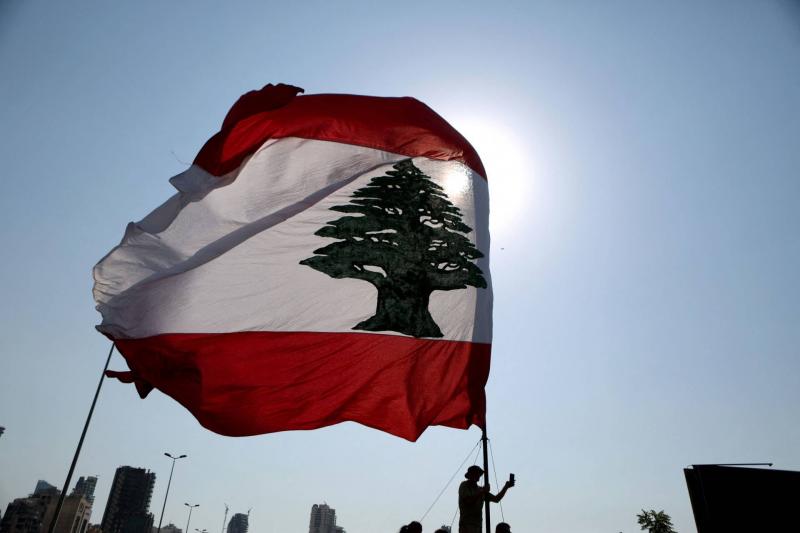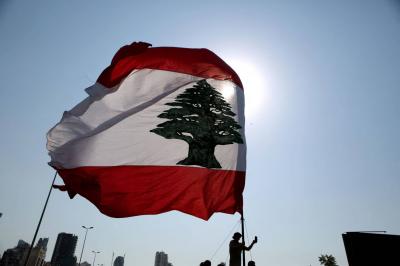The influential countries in Lebanon are preparing to intensify their communications with the main political forces, aiming to create a breakthrough that facilitates the presidential elections on schedule. This is crucial as the deadline approaches, which would nullify the hopes of those betting on postponing the elections. A delay would lead the country into a state of fatal vacuum. However, the decision of these countries to activate their political engines will be delayed until the beginning of September, coinciding with the start of the constitutional deadline for electing a president, after the summer vacation of the leaders and their senior aides who have limited communication with the main Lebanese parliamentary blocs capable of influencing the presidential election if international contacts pave the way.
"Al-Sharq Al-Awsat" learned from prominent political sources that Paris has not yet fully invested in preparing the conditions necessary for the presidential election on time. It is closely monitoring the hesitant movement of the main parliamentary blocs involved in the presidential entitlement, which is still below the required level. However, there is some satisfaction regarding the meeting between the leader of the Progressive Socialist Party, Walid Jumblatt, and two Hezbollah officials managing the Lebanese file, who are in contact with Secretary-General Hassan Nasrallah.
The political sources indicated that Paris is calling for "creating a common political space to expand and activate the dialogue," so it does not remain limited to just the Progressive Socialist Party and Hezbollah. This is crucial to prevent plunging the country into a fatal vacuum that exacerbates the crisis hindering its exit from the catastrophic situation it is grappling with, which has brought it to the brink of total collapse.
Paris has taken it upon itself to gauge the opinions of major political forces regarding its proposal for a national dialogue about the future of the political system in Lebanon. It reported that it "has not received encouraging responses" because most parties contacted during preliminary communications believe the priority should be given to the presidential entitlement to secure a safe passage through it. They argued that there is "no need for a dialogue that exceeds the election of the president," as it could open the door for some parties to treat it as a means to discuss a new system at the expense of the Taif Agreement before its implementation and purification from the issues resulting from its poor application.
The sources noted that Paris "had to withdraw its proposal to start a dialogue on the political system because it faced opposition from most of those it contacted." They added that merely raising the future of the system for discussion could lead to internal divisions and provoke objections from the countries that sponsored its establishment. They emphasized that "just proposing the topic could obstruct the presidential election on time and give excuses to some parties rejecting the Taif Agreement to engage in populist maneuvers in light of several groups advocating federalism on one hand and calling for expanded fiscal decentralization on the other."
These sources also suggested that "Paris made an error in managing the Lebanese file when it equated those seeking to form a government with specifications proposed by French President Emmanuel Macron and those insisting on obstructing it." It noted that there was no need to corner former Prime Minister Saad Hariri by insisting on meeting with the head of the Free Patriotic Movement, MP Gibran Bassil, presenting him as a partner in forming the government. They stated that "Paris's patronage of the political heir to President Michel Aoun led to Hariri's withdrawal from the government formation, to later discover Prime Minister Najib Mikati that coexisting with Bassil was impossible."
Paris, they added, has "lost the role assigned to Macron by the United States in the Lebanese file due to the multitude of opinions within the French house responsible for following up on the issue" and has replaced it with a supportive role after Washington entered the presidential file robustly. It expected "Moscow to enter the presidential file, as it does not plan to leave the field to Washington and Paris." They stated that "its preoccupation with the war in Ukraine does not mean it is obligated to ignore the Lebanese arena."
The Russian administration has started to explore the atmosphere in preparation for sending Russian President Vladimir Putin's special representative in the Middle East and Africa, Deputy Foreign Minister Mikhail Bogdanov, to Beirut. His agenda includes communicating with Moscow's allies over the presidential entitlement because there are fears that instability in Lebanon could extend to Syria, which receives its attention due to the political and military influence it enjoys there.
According to the sources, Lebanon is preparing for a more effective international movement that will coincide with the start of the presidential entitlement on September 1, as the international community will not leave it alone to deal with its issues, especially since the possibility of reaching an agreement on a new president remains difficult. This entitlement cannot be approached without securing international backing that acts as a minefield clearer to eliminate the traps obstructing its timely accomplishment.
The question remains: What prevents multiple dialogues domestically from removing the political barriers hindering communication? Will the dialogue remain solitary and restricted to the Progressive and Hezbollah, or will it extend to include others? Despite their dialogue, even if it arises from a position of disagreement and conflict resolution, it remains better than total cessation, reflected in the satisfaction of Maronite Patriarch Bechara Al-Rahi, who noted during his reception of the "Democratic Gathering" delegation led by MP Taymour Jumblatt that "there is a necessity for parties to engage in communication instead of mutual attacks, as saving the country, starting with thwarting the plans of those betting on the impossibility of electing a president on time, remains a priority in the current political agenda."
In this context, "Al-Sharq Al-Awsat" learned that Al-Rahi informed the "Democratic Gathering" delegation that "the doors of Bkerke remain open for communication and dialogue, and there is no obstacle to reviving his dialogue with Hezbollah, which has been stalled for years. His invitation for positive neutrality for Lebanon was not the reason for its stoppage." So, will Hezbollah pick up on these political signals after being informed through intermediaries, including some who frequently visit Bkerke and the Maronite Patriarchate's summer residence in Diman?
Until it does, attention turns to the anticipated meeting of independent lawmakers and those belonging to the change forces scheduled for tomorrow, Tuesday, at the parliament building. The focus will be on whether they can agree on a roadmap to unify their position regarding the presidential entitlement and their readiness to meet with the parliamentary majorities that are in consultation with them.
On the other hand, the Grand Mufti of the Lebanese Republic, Sheikh Abdul-Latif Deryan, is considering intensifying communications to unite the largest number of Sunni MPs and consolidate their position regarding the presidential entitlement. Their fragmentation robs them of a significant and influential role in electing the president, similar to that of the major sects, and leads to an imbalance in the political equation. Will he take on this task to correct the imbalance caused by the reluctance of religious authorities to engage in parliamentary elections? Notably, his task enjoys Arab support and international backing, as expressed by the majority of accredited ambassadors in Lebanon who continuously ask, "What can be done to mobilize the Sunni MPs or their majority to have the final word in electing the president?"




